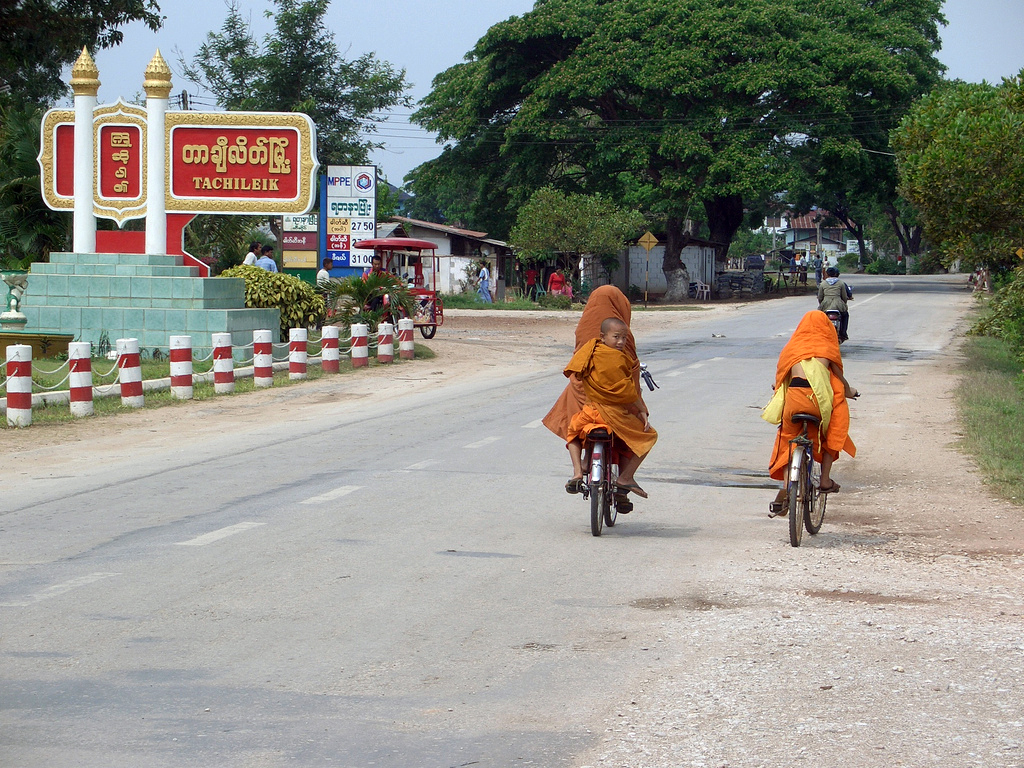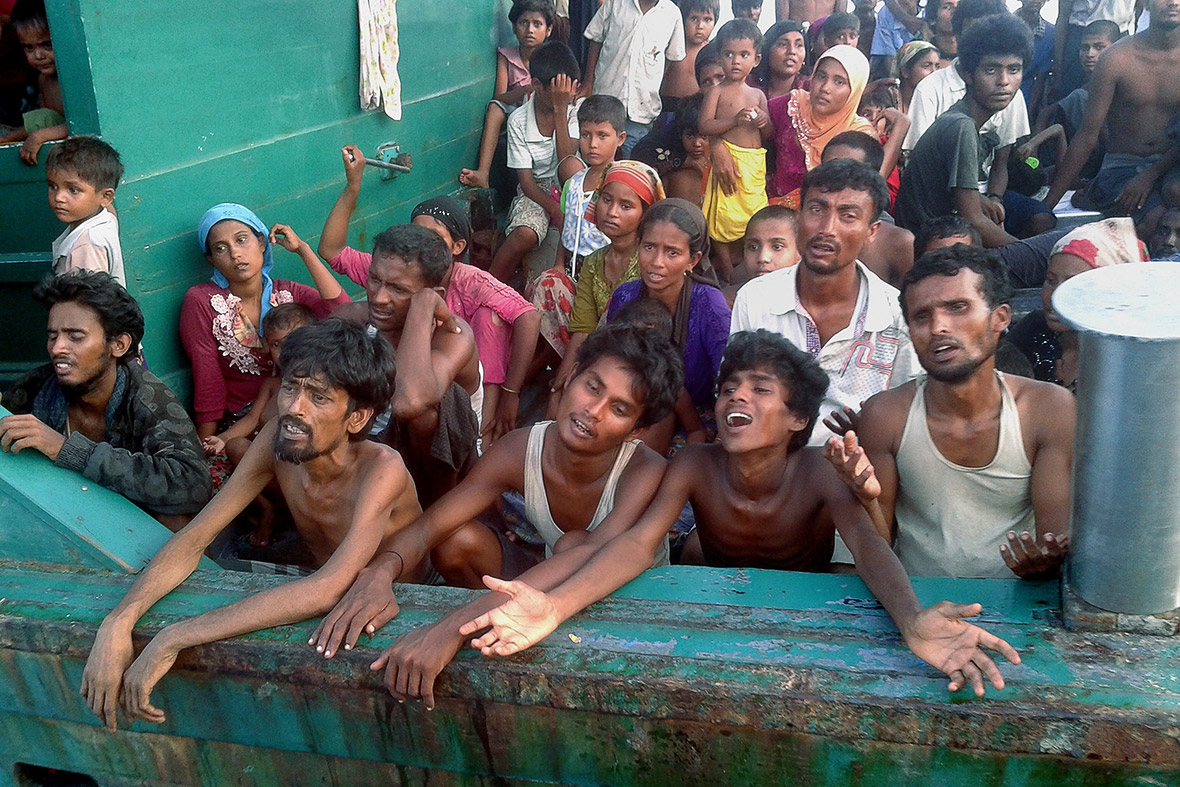Myanmar is a Southeast Asian country also known as Burma, bounded by the Bay of Bengal, Bangladesh, and India to the west, and China, Laos, Thailand and Malaysia to the east. The Rohingya are an ethnic Muslim minority group living primarily in Myanmar’s western Rakhine state. From a religious point of view, they are considered as a minority because they practice a Sufi-inflected variation of Sunni Islam.
The current situation of Rakhine State is dramatic. Rohingya can barely survive as a consequence of the communal riot of 2012, committed between Muslim minority group of the population and Myanmar Military force, when an Islamist militant group named Harakah al-Yaqin reportedly claimed responsibility for the October attacks.

The fact was that militant group attacked three Border guard posts and killed 9 policemen of Myanmar Government. After that Myanmar government claimed the militant group who has interconnected between “Rohingya” and it also alleged they belonged to an international terrorist network. For this reason, Myanmar military force promoted an initiative named ‘area clearance operations’ which started a persecution against the Muslim minority. Nowadays, we can assume that is the symbol of widespread destruction of Humanity.
The Muslim Rohingya minority is fleeing for their lives, no one are not safe in the Rakhine State. Myanmar state security forces say that they are hunting for suspected militants in the northern part of Rakhine, while human rights groups and refugees say that troops are conducting extrajudicial killings and committing rape and arson. UN reported most shocking news about Rohingya generation: babies and children have been slaughtered with knives during the military campaign on Rohingya Muslims in Burma. The number of people internally displaced in Rakhine State is unknown. By the end of October 2016, the United Nations High Commissioner for Refugees had registered some 55,000 Rohingyas in Malaysia, most of who had fled by boat. Some 33,000 Rohingyas are living in refugee camps in “Kutupalong” and “Nayapara” in Bangladesh, while another 300,000 to 500,000 unregistered refugees are estimated to have settled elsewhere in the country.
Rohingya refugees have also been temporarily situated in Thailand, Indonesia, and India. Satellite imagery analyses by Human Rights Watch (HRW) present an ‘egregious destruction’ of Rohingya villages since last October, identifying 1,500 burned buildings. Myanmar army’s chief, Senior General Min Aung Hlaing, denied the fact and stated that Rohingya residents had set fire to their own homes “in the hope of getting a new home” built by the army. Although Myanmar Government denied about the entire crime, what they have done within the period in Rakhine State to the Rohingya Muslim population is out of doubt.

In December 2016, Myanmar’s government appointed a commission to investigate the violence that erupted in Rakhine state in October. The commission found no evidence of current conflict and religious persecution of the Rohingyas there, in sharp contrast with other national and international reports. After this report it should be clear that Myanmar government carrying out “ethnic cleansing” and the violation is a kind of drama to clean this ethnic minority. There was a short intro about the Rohingyas situation, although the journey of this “ethnic cleansing” is not a new fact for the Muslim Rohingya minority. According to Amnesty International, the Rohingya have suffered of human rights violations under past military dictatorships since 1978, and as a result, many have fled to neighboring Bangladesh.
In 2005, the United Nations High Commissioner for Refugees had accelerated the process of repatriation of Rohingyas from Bangladesh, through allegations of human rights abuses in the refugee camps threatened this effort. In 2015, 140,000 Rohingyas were kept in IDP camps just after communal riots in 2012. Rohingya are deprived of their free movement, education facilities, job facilities and refrained from voting system and ultimately. Hence,they have been refused to give Myanmar citizenship or nationalities under the 1882 Burma Citizenship Law. According to the Myanmar government, they are “illegal” also in Bangladesh since before it has become independent from the British.
Why Rohingya people have been seen as one of the world’s most maltreated minorities where Nobel Peace Prize winner and Myanmar’s president Aung San Suu Kyi remains silent to settle the dispute? Basically, the Rohingya issue has thus become a local problem with regional consequences although this question indicates the open secret issue of religion. In Rakhine State, predominantly 90% of Myanmar populations are Buddhists whereas only 4% of populations are Muslim. There’s always been a silent tension between Buddhist majority and Muslim minority which had led the tragedy. Even if the Rohingya want to travel anywhere outside of their residence, they need to take the official permissions by the Myanmar Authority. Not only that, they are compelled to sign an agreement not to give birth more than two children and are assigned to perform routinely forced labor once a week in military or government projects and one night for sentry duty.
Furthermore, Rohingya have lost most of their cultivable land held by Buddha list settlers. Many national and international organizations, answer to this crisis. In Early December 2016, the Malaysian Prime Minister carried out a rally in protest against the torture of the Rohingyas. During a press conference, the Prime Minister said “We want to tell Aung San Suu Kyi, enough is enough,” and also stated that “The world cannot stand by and watch genocide taking place”. In November, protests also took place in Dhaka where about 5,000 Muslims congregated outside the ‘Baitul Mokarram mosque’ to denounce the military assault in Myanmar. It was considered as a warning sign to the Myanmar but the authority does not care. Moreover, they also denied any access to the area for journalists and aid agencies.
International Human Rights Groups stated about the the current situation of Rohingya ‘humanity is crying in Myanmar’. The Rohingya are “friendless and hopeless” and they need international action and help to overcome this terrible situation. According to a Rohingya activist named Nay San Lwin, “There have been many concerned statements from the U.N. officials, yet we are not seeing real action”. In this crucial situation, to save the earth’s one of the oldest muslim ethnic groups, immediate steps should be taken by private or public stakeholders, the government to uphold the universalism of human rights.
Tanjil Hossein
Also published on Medium.






